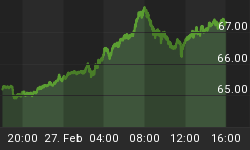If 2015 was a year Brazil would like to forget, 2016 is doing its best to make that happen. But, alas, not in the way Brazilians might hope.
To recap, last year a corruption scandal erupted that crippled the country's oil giant Petroleo Brasileiro and threatened to topple the government. The stock market tanked, the real was one of the world's worst performing currencies, inflation hit double digits and the economy tipped into recession.
But this year -- while all of the above is still festering -- an African mosquito-borne virus that causes birth defects has arrived and gone exponential:
Zika virus spreading 'explosively', says World Health Organisation
(Guardian) - The World Health Organisation has convened an emergency committee to discuss the "explosive" spread of the Zika virus, which has been linked to thousands of birth defects in Latin America.
"Last year the disease was detected in the Americas, where it is spreading explosively," Margaret Chan, the WHO director general, said at a special briefing in Geneva. It was "deeply concerning" that the virus had now been detected in 23 countries in the Americas, she added.
One WHO scientist estimated there could be 3 to 4 million Zika infections in the Americas over the next year.
The spread of the virus has prompted governments across the world to advise pregnant women against going to the areas where it has been detected. There is no vaccine or cure for Zika, which has been linked to microcephaly, a serious condition that can cause lifelong developmental problems.
Chan said: "The level of alarm is extremely high. Arrival of the virus in some cases has been associated with a steep increase in the birth of babies with abnormally small heads."
Brazilian authorities estimate the country could have up to 1 million Zika infections by now, and since September, the country has registered nearly 4,000 cases of babies with microcephaly.
The Zika outbreak and spike in microcephaly cases have been concentrated in the poor and underdeveloped north-east. But the south-east, where Sao Paulo and Rio de Janeiro are located, is the nation's second hardest-hit region. Rio de Janeiro is of particular concern, since it will host the Olympic games this summer.
The Brazilian president, Dilma Rousseff, has pledged to wage war against the Aedes aegypti mosquito that spreads the virus, focusing on getting rid of the insect's breeding grounds.
Unfortunately -- as Brazil's luck would have it -- this is an el Niño year, which generally brings heavy rains that multiply the pools of standing water in which mosquitoes can breed. Just in time for hundreds of thousands of Olympic athletes, fans and news media to arrive a few months hence.
At the risk of veering off into New Age metaphysics, Brazil's plight illustrates a life lesson that the world forgot during the post-1971 Money Bubble: The less well-prepared you are for disaster, the more likely the universe is to send one your way. Keep current with your insurance and accumulate lots of free cash and you're unlikely to need it. But max out your credit cards (or explode the national debt in the case of countries) and you can be sure the proverbial roof will spring a leak.
Brazil (which over-spent and over-borrowed in response to the Great Recession while apparently giving in to the temptation to steal billions from taxpayers) is today's object lesson. But it's probably too late for other major countries to heed the warning and adjust their behavior accordingly. The US, Japan, and Europe are all pitifully unprepared for their day in the rain. And -- given the universe's sense of irony -- their turn is coming.















